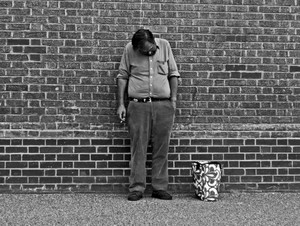Sadness, crying spells, guilty feelings, depressed mood – these are all very normal feelings associated with bereavement; but for about 20% of people, grief can lead to major depression.
How Can You Differentiate Between Grief and Depression?
Appropriate bereavement is normal and even healthy, while major depression requires treatment; how can you tell the difference between the 2 states when their symptoms have so much in common?
While bereavement can cause lengthy periods of depressive symptoms, there are some normal differences between grief induced feelings of depression and a major clinical depression. Some signs that might indicate that normal grief has become a treatable mental illness (major depression) include:
- Anhedonia - The inability to experience pleasure for a significant length of time. The inability to enjoy or get interested in activities that used to be enjoyable is one of the hallmarks of depression. While a grieving person may often feel down, a prolonged inability to ever feel pleasure is a sign of depression, and not of normal grief.
- Pervasive sadness – Depression is constant; casting sadness widely over most of each day, for a lengthy period of time. Normal grief tends to be more fluid. A triggered memory can cause great despair, but emotions will also change and bounce up and down over the course of a day. Grief does not normally cause pervasive and long lasting sadness (weeks or months) although it can cause lasting "triggered" sadness.
- Feelings of low self esteem or low self confidence – Grief focuses on the loss of another; lasting feelings of low self worth (self focused) may indicate depression.
- Feelings of guilt, not related to the loss of a loved one – Guilt is a commonly experienced symptom of normal grief; wishing we could have done things differently, or done more while we had the chance. Pervasive feelings of guilt without cause, however, are a symptom of depression and not of grief. If you feel lasting and nagging guilt for no apparent reason, you may have depression.
- A lasting inability to perform normal daily tasks and activities (to take care of yourself, for example) is a sign of depression, and not grief.
Symptoms of grief that last with severity for a couple of months or more and that affect your ability to function normally should be investigated. It never hurts to talk to your doctor about the way you're feeling.
How Long Should Grief Last?
There is no "appropriate" time limit for normal grief, but should symptoms persist with severity for more than a couple of months, you should look closely at the way you are feeling to ensure that the way you feel is caused by normal bereavement, and not by mental illness.
Normal grief will lessen and pass in time, while major depression may not. It is important that anyone suspecting a diagnosis of depression talk to a doctor or mental health professional about treatment options.
Who is Most at Risk for Grief Triggered Depression?
Some people are at greater risk for grief triggered major depression, such as people:
- Who have previously experienced a major depression
- Who abuse drugs or alcohol
- Who have a very stressful lifestyle
- Who lack a social support system
What is Complicated Grief?
Complicated grief is a form of problematic and prolonged grieving that differs from major depression.
While normal grief will diminish in intensity over time (within about 6 months) those with complicated grief will experience no reduction, or even an increase in bereavement symptoms, for many months or even years. Complicated grief is also sometimes known as unresolved grief – a period of mourning in which no progress is made towards resolving feelings of bereavement.
Some of the symptoms of complicated grief include:
- Being unable to accept the death
- Nightmares or flashbacks; or intrusive memories
- Maintaining a "pretend" relationship with the deceased
- Feeling distrustful or suspicious of others
- Bitterness or irritability
- Focusing exclusively on thoughts of the deceased
- Feeling angry about the death
- Feeling unable to move past the grief
- Social isolation
- An inability to perform normal daily activities
- Being unable to enjoy life
While the cause of complicated grief remains unknown, factors thought to increase the probability of experiencing the condition include:
- A sudden or unexpected death
- A violent death
- A suicide
- Being very close to the deceased
- Having a limited social support network
- Experiencing childhood trauma
Anyone who feels as though they are "stuck" in grief, that their grief has gone on for too long or that it affects their ability to function or enjoy life should talk to a doctor or mental health professional about the way they feel. Should your doctor diagnosis complicated grief, she may recommend cognitive behavioral therapy (CBT) or interpersonal therapy.
Page last updated Aug 18, 2010


